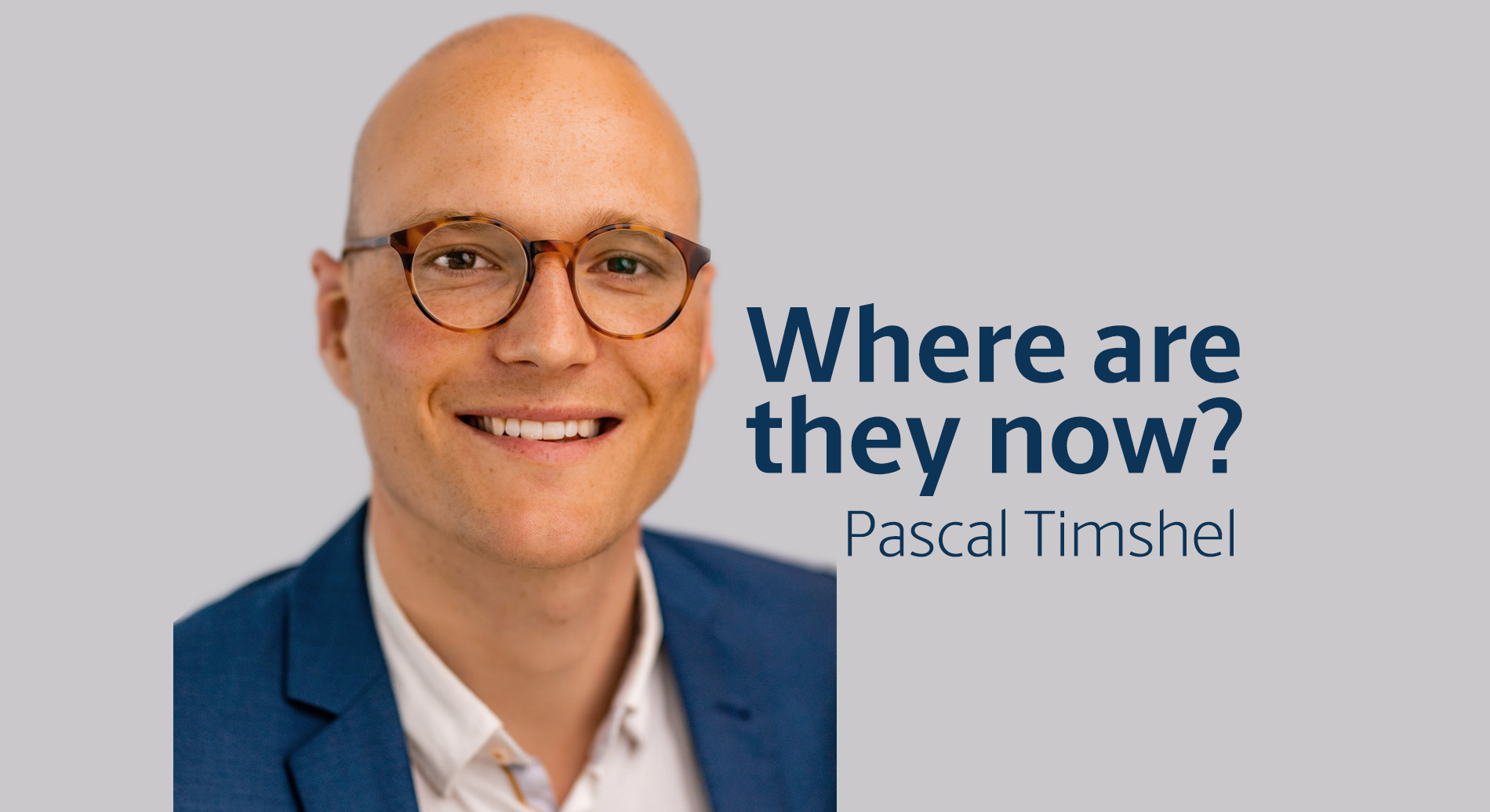"I wanted to do something that could really scale ... beyond helping one patient at a time"
Pascal Timshel is a bioinformatics team leader at Intomics, a Danish company that uses insights from “biomedical big data” to help pharmaceutical companies develop new drugs. He joined Intomics in 2019, after completing his Ph.D degree in bioinformatics at CBMR. We recently caught up with Pascal to learn more about his career to date.

Where did your interest in science come from?
Like many people who end up as scientists, I had a natural attraction to maths and science. When I was in high school, I considered becoming a doctor like my mother — until I saw her work was limited to treating one patient at the time. I wanted to do something that could really scale — and engineering in science involves concepts that go beyond helping one patient at a time.
What did you study at university and why?
My bachelor’s degree was in biotechnology at the Technical University of Denmark [DTU] but bioinformatics really caught my eye. I found out how computer algorithms can learn biology from the data – and not the biology textbook that I was learning from. It almost felt like magic, and I loved the freedom of doing experiments on the computer instead of the laboratory. At the end of my master’s, I got the opportunity to join a research project working with cancer genetics here in Denmark. That motivated me to spend a year as a visiting researcher at Harvard Medical School, where I met Tune H Pers, who got a grant to establish a research group in Denmark and became my Ph.D adviser at the Novo Nordisk Foundation Centre for Basic Metabolic Research [CBMR].
What was the focus of your Ph.D?
When I started out, I was especially interested in human genetics, which is about connecting the genome to disease. At the same time, single-cell technologies that allow you to study genomics at a single cell level, were developing rapidly. Fortunately, our lab was well connected in Massachusetts and able to take these technologies back to Denmark to play around with and study. This was incredibly exciting and channeled my work into single-cell transcriptomics, so in the end, my focus evolved to study the connection between the genome and the cell types that cause disease.
What stood out for you about CBMR?
There’s a feeling you get when you walk through the door, a sense of gratitude that people have for being there. Obviously, the Maersk Tower is an amazing location and I don't think you should undervalue architecture for stimulating collaboration. It definitely makes a difference. Most research centers are highly international, as is CBMR, but people are immediately accepted there and that's always been the case. Equally, I would guess that the female-to-male ratio is very close to being equal. Finally, from a scientific perspective, you can do great experimental work under the same roof at CBMR, which is exciting for people like me who can only take things as a prediction, so someone else can follow up experimentally, which is cool. This creates opportunities to tackle big projects that will really push the field forward.
Why did you decide to leave academic and join Intomics?
I was ready to transition into the industry for two reasons. The first was the focus on teamwork and getting teams with a unified direction and really leveraging the power of multiple people. In industry, you work towards a common goal and sometimes also a specific one. But then I also wanted to build out non-technical skills, be it leadership or working with innovation in a more process-oriented way. Intomics offered me a great opportunity to continue working with single-cell technologies and apply them to industry.
What do you do at Intomics?
I lead a team of talented bioinformaticians focused on accelerating target discovery in pharma and biotech. We’re basically trying to improve how data and bioinformatics are used, and bring the power of single-cell technologies to industry. We're really good at taking the massive amount of public data that's available, combining it with client data and solving a specific problem they have. Our clients range from startups to biotech and big pharma, and that’s part of the excitement of the job: there’s always new challenges because we work across the whole biomedical industry.
How has your work influenced how you live your own life?
I appreciate all the things that data science and algorithms can't put into numbers — art, poetry, music and so on. But research and science has also made me more intimate with the state of not knowing. And that's incredible because you’re taught in school to always know the answers and when you go out and try out scientific research, you see that, after some time, that’s the state you have to be in most of the time — a state of not knowing. And that has influenced my life because I'm more open to that state now.
By James Clasper. This interview was edited for clarity and concision.
